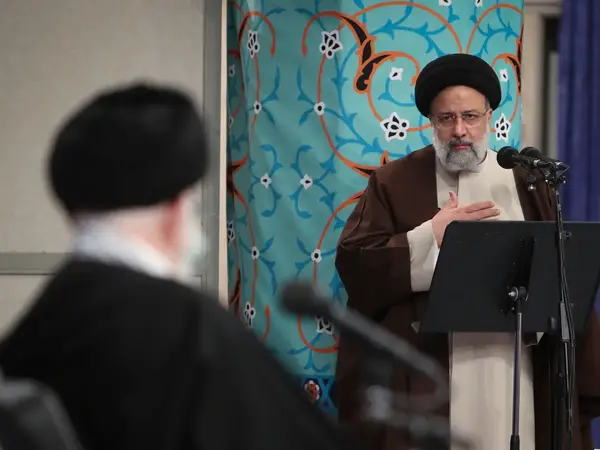Supreme Leader Ali Khamenei’s assertion Tuesday that flouting hijab is “religiously and politically haram” has prompted officials to signal stricter measures.
At a meeting with state officials Tuesday, Khamenei claimed that foreign intelligence services were encouraging Iranian women to disobey mandatory hijab. He also claimed that “the enemy” is working according to “a plan and plot” and urged authorities to have their own plan for dealing with the issue of hijablessness.
“Discarding hijab is haram based on Sharia and also politically,” he declared. His declaration was a clear signal to authorities that they need to do anything it takes to re-establish control over women which had somehow waned following anti-regime protests.
“The order given by his excellency is clear,” Parliament Speaker Mohammad-Bagher Ghalibaf said Wednesday while promising to give precedence to any hijab-related motion or bill.
Following Khamenei’s cue, the ministry of interior in its second statement on hijab within a week, alleged that the opposition to compulsory hijab was an enemy plot advanced by foreign intelligence services and the opposition outside Iran, who through social media are trying to use it to “create deep social divides and a divide between the people and the government.”
Airport staff refusing to offer services to ‘hijabless’ women in Shiraz
Claiming that the ministry is responsible for ascertaining and defending “rights of the majority of the people,” the statement said it will fully support the activities of vigilantes who have been harassing women to follow the Islamic dress code.
The ministry also said the judiciary and other organizations involved in the enforcement of compulsory hijab will take action “against the few who act against the society’s norms” to defend the “dignity and identity of the Muslim Iranian women.”
Mahsa Amini’s death in ‘hijab police’ custody in September sparked the protests That engulfed the country nearly non-stop for four months. Many women burned their headscarves during the protests, vowing never to surrender to compulsory hijab again.
‘Hijabless’ women are now seen everywhere, even in some of the most conservative cities. For many, this is a form of civil disobedience. Some social media users have said that in some public venues such as restaurants, ‘hijabless’ women outnumber those who wear headscarves.
On Wednesday, an official of Tehran’s Metro Organization, Masoud Dorosti, said his organization has set up a “chastity and hijab taskforce” for enforcement on public transport. According to Dorosti, the first phase of the plan, giving verbal warnings to women who do not abide by the hijab requirement, has begun at metro stations. Tehran municipality has adopted similar plans.
The police and the judiciary have also resorted to pressuring businesses to enforce the hijab on their premises.
Authorities have shut down hundreds of shops, restaurants, cafes, and ecotourism facilities during the two-week New Year (Nowrouz) holidays across the country.
Earlier this week, the ministry of higher education said institutions under its coverage will no longer offer educational and other services to students who do not abide by hijab rules.
The Islamic Azad University, which is not administered by the ministry, has also announced strict measures against defiance of the compulsory hijab. The university which has over 1.1 million students across Iran has ordered its faculty to “seriously manage” abidance of the hijab rules by their students and threatened them with repercussions if students flout hijab in their classes.
“Conflict between professors and students? We are teachers not police or sheriffs. It is knowledge that will eventually be harmed by destroying teachers’ relationship [with students],” a professor of criminal law at Tehran university, who was recently sacked for criticizing the regime after the execution of four young protesters, said in a tweet Tuesday.
